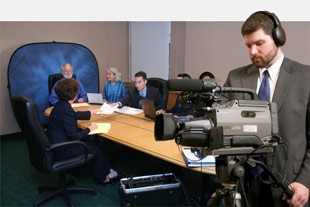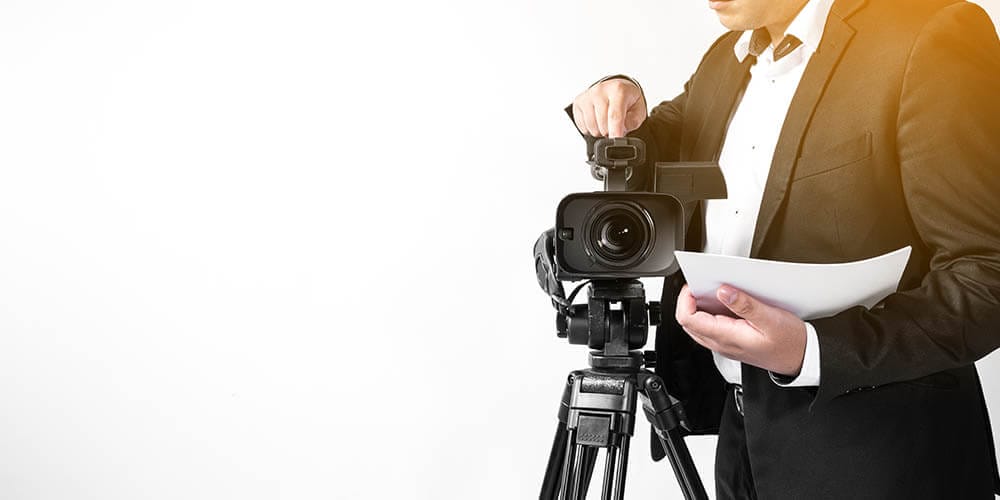Advanced Legal Videography for Mediations.
Advanced Legal Videography for Mediations.
Blog Article
The Duty of Lawful Videography in Depositions and Trials
Lawful videography has emerged as a necessary tool in both depositions and trials, giving a multifaceted technique to recording witness testimonies. As lawful specialists increasingly acknowledge its worth, it prompts a deeper assessment of just how these visual records can influence juror assumptions and test outcomes.

Value of Lawful Videography
Lawful videography plays a pivotal role in the paperwork and presentation of depositions and trials. This specific area incorporates technological abilities with legal expertise to develop a trusted record of process that can considerably affect situation results. The appearance of lawful videography improves the understanding of witness statement, enabling jurors and judges to observe not only the spoken words but also the disposition, emotions, and body language of the witnesses.
In addition, lawful videography supplies an objective account of occasions, lessening the potential for misinterpretation that can take place with composed transcripts alone. This aesthetic documentation functions as a critical tool throughout test presentations, promoting a clearer and even more convincing narrative for both complainants and defendants. In addition, the capability to replay video clip sections throughout court procedures makes it possible for legal groups to highlight bottom lines, enhancing their arguments properly.
The significance of lawful videography extends beyond the court; it also plays an important duty in maintaining evidence for future recommendation, whether for allures or more lawsuit. Its integration into the legal process is vital for making certain a reasonable and exact depiction of the realities, ultimately contributing to the pursuit of justice.

Process of Legal Videography
While recording the subtleties of depositions and trials, the procedure of lawful videography involves several essential actions that guarantee premium, precise recordings. A specialist legal videographer prepares by evaluating the instance materials and recognizing the certain requirements of the deposition or test. This preparation includes acquainting themselves with the participants and the context, which assists in catching pertinent information.
On the day of the recording, the videographer establishes the needed equipment, which commonly includes high-def cameras, microphones, and appropriate lights. Guaranteeing optimum angles and sound high quality is critical, as it directly affects the performance of the recording. The videographer communicates with lawyers and individuals to establish procedures, making certain that everyone comprehends the recording process.
Throughout the deposition or test, the videographer meticulously tapes the process, paying attention to both verbal and non-verbal hints. This consists of recording the demeanor and reactions of witnesses and attorneys. After the session wraps up, the videographer might modify the video for clarity and compliance with legal standards, creating a last item that properly mirrors the proceedings for future reference and use in legal contexts.
Benefits in Depositions
The consolidation of videography in depositions uses many benefits that improve the total procedure of collecting evidence. One primary benefit is the ability to capture witness testimonies with visual and acoustic integrity, giving an extra exact depiction of the witness's attitude, tone, and body movement. This multidimensional technique enables attorneys and juries to analyze credibility more effectively than traditional written records alone.
Furthermore, videographed depositions act as a powerful device for protecting statement. Ought to a witness become inaccessible for test, their tape-recorded deposition can be played in court, ensuring that their proof stays available and pertinent. This element considerably reduces the threat of losing essential details that might impact instance results.

Finally, videography improves the total professionalism of the deposition process, instilling confidence in clients concerning the thoroughness of their legal representation (legal videography). By leveraging innovation, lawyers can substantially enhance the efficiency of depositions
Influence on Trials
In numerous trials, the integration of videography can significantly influence the discussion of proof and the jury's understanding. Legal videography captures witness testaments and essential proof in a vibrant format, allowing jurors to involve with the product on several levels. This aesthetic element improves the storytelling facet of a test, offering context and emotional vibration that why not try this out standard text-based evidence might do not have.
Furthermore, video clip recordings can act as powerful devices for impeachment throughout cross-examination. When disparities develop between a witness's previous declarations and their courtroom testament, video evidence supplies an objective referral that can persuade jurors' point of views. This immediacy and quality can reinforce the reliability of an event's narrative while simultaneously threatening opposing arguments.

Future Trends in Legal Videography
As we look toward the future of legal videography, several emerging fads promise to reshape its role within the court room. One substantial pattern is the combination of expert system (AI) in video clip analysis and editing. AI can streamline the procedure of determining key minutes in taped depositions, allowing lawyers to swiftly access relevant web content, consequently enhancing performance in situation preparation.
In addition, the rise of digital truth (VIRTUAL REALITY) and increased reality (AR) modern technologies is expected to change exactly how jurors experience proof. legal videography. By immersing jurors in a substitute atmosphere, look here these modern technologies can supply a more extensive understanding of complex situations, leading to even more informed deliberations
In addition, the boosting need for remote depositions, accelerated by the COVID-19 pandemic, will likely proceed. Legal videographers will require to adapt to new software program and platforms to make sure top quality recordings in digital setups.
Finally, the expanding focus on data safety helpful hints will certainly necessitate stricter procedures for saving and sharing video evidence. As the legal landscape progresses, lawful videographers must stay abreast of these patterns to keep their importance and effectiveness in the judicial process.
Final Thought
In recap, lawful videography serves an essential function in the judicial procedure, boosting the honesty of depositions and trials. As technology continues to advance, lawful videography is positioned to additional transform its duty within the lawful landscape.
Report this page